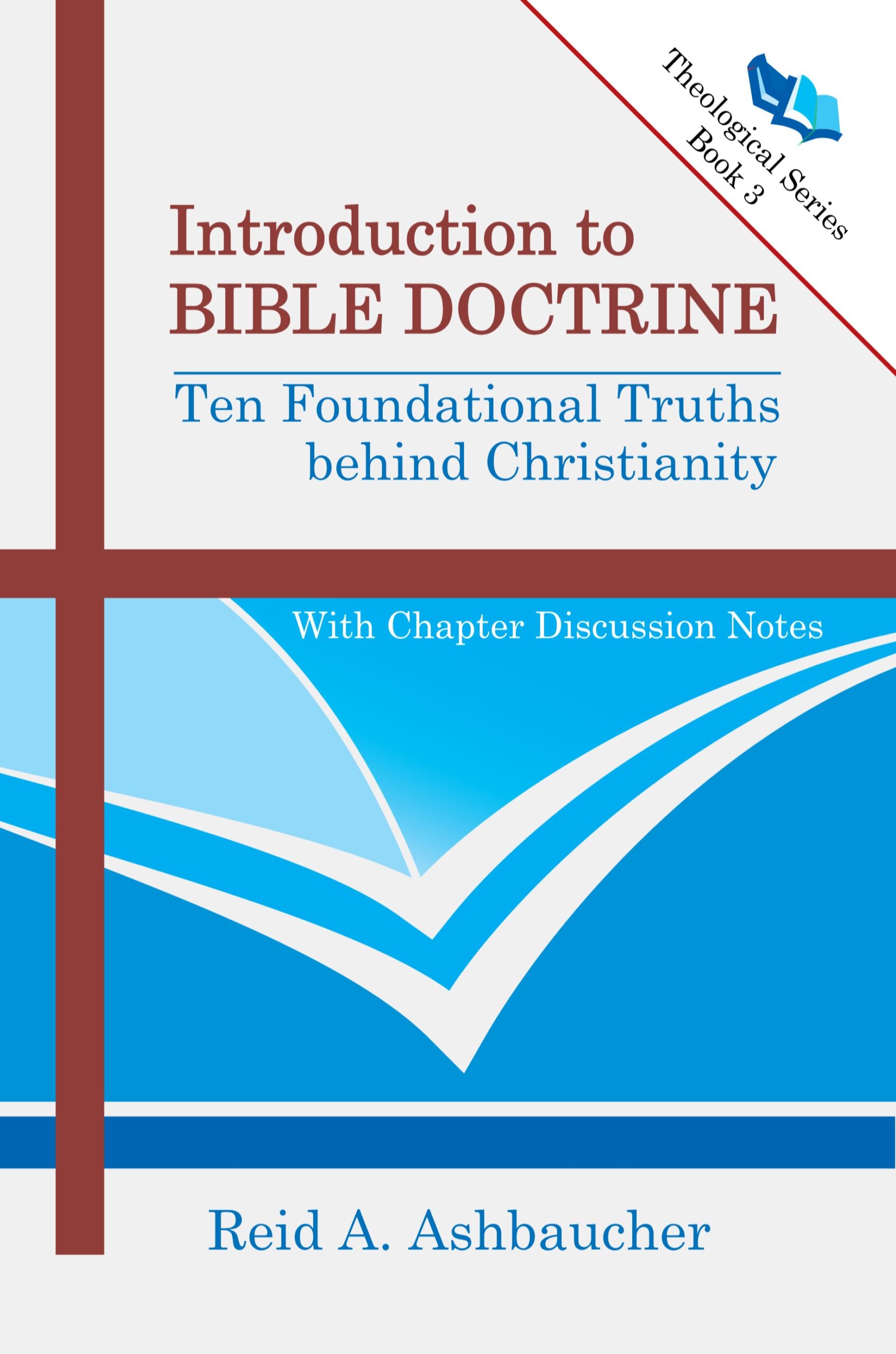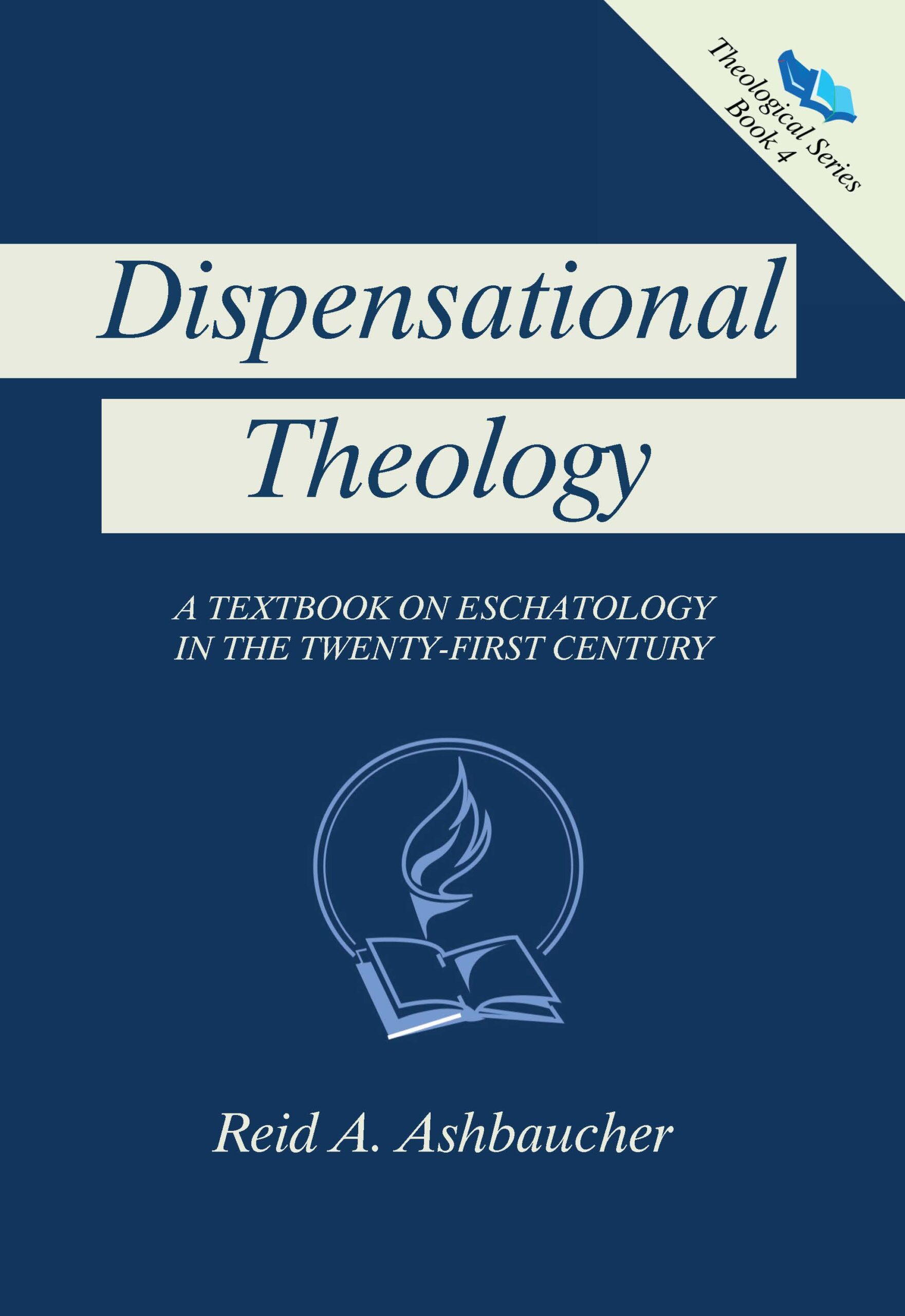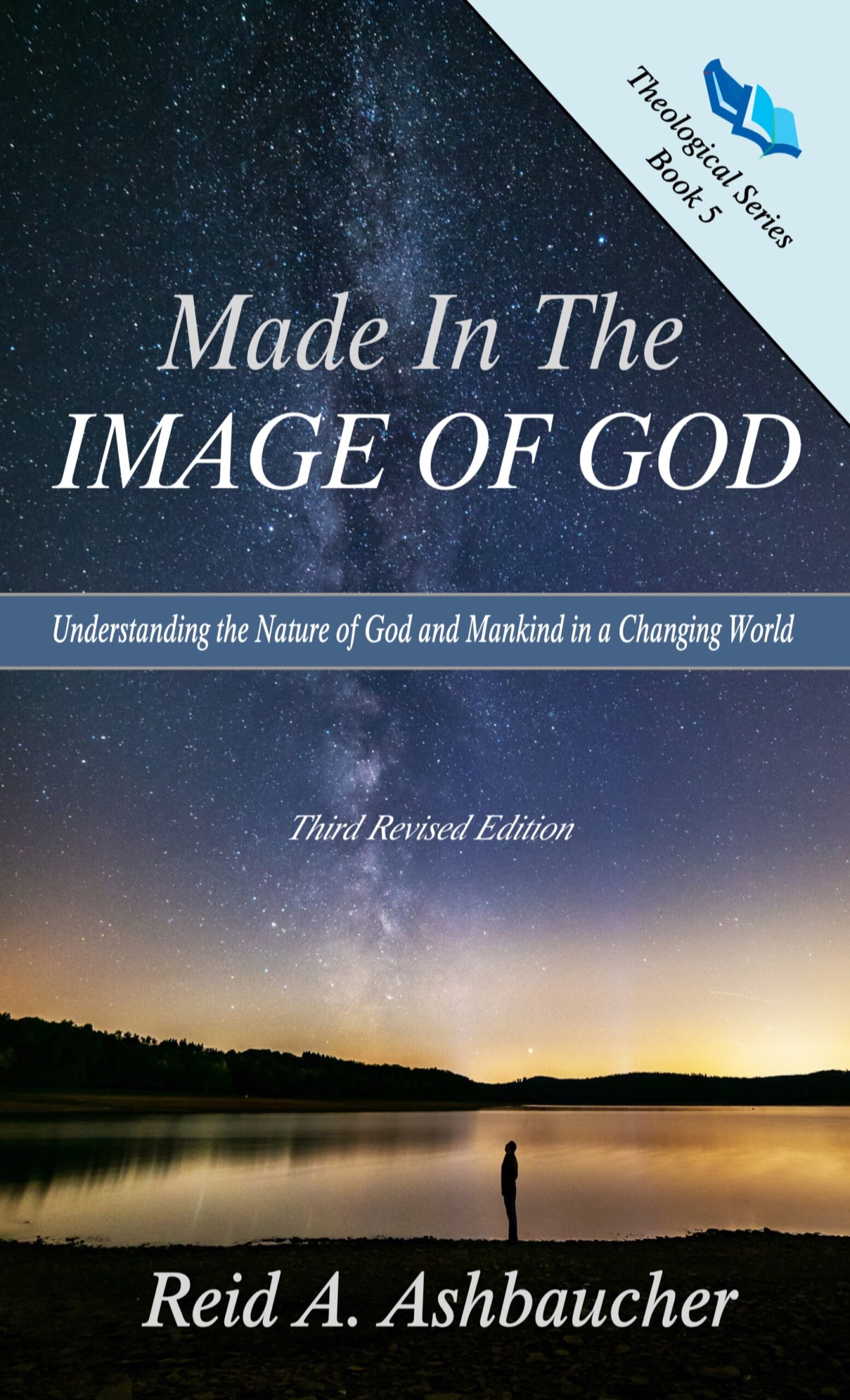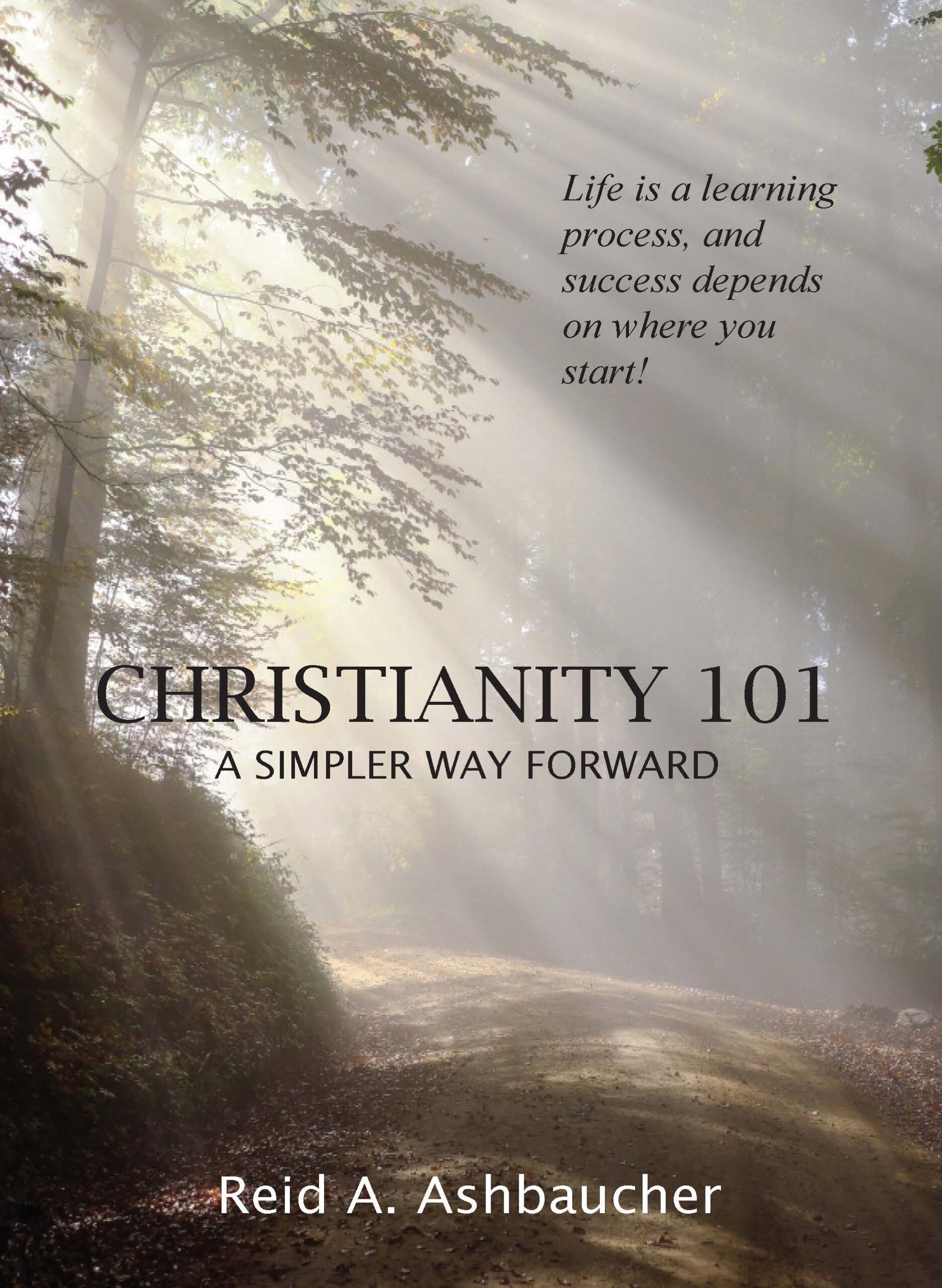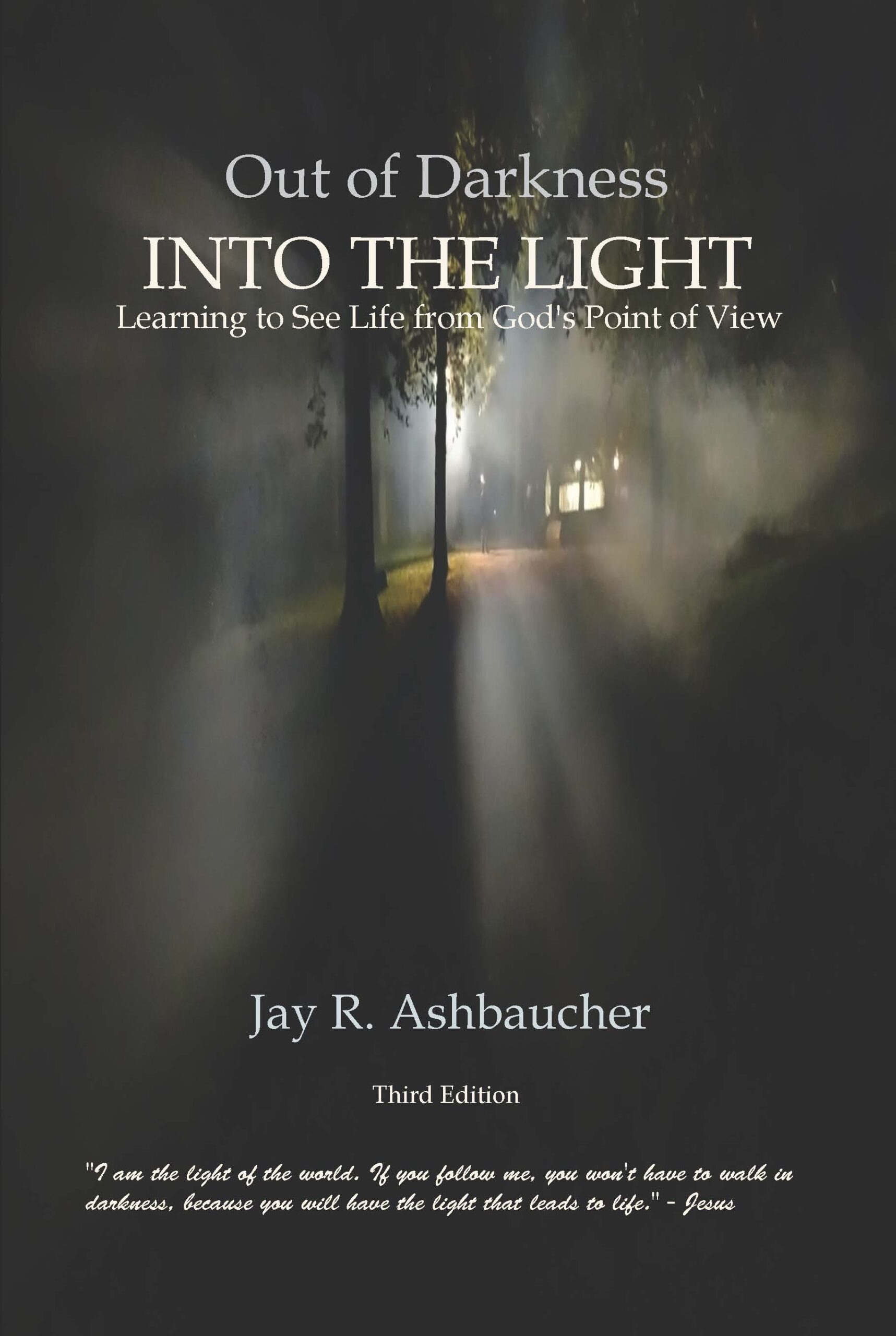Author: Reid Ashbaucher | Date of Writing: August 2005
The DoctrineBible doctrine is any subject within the Bible that is taught as a principle, law or commandment. Some would hold that the wisdom advice given in the book of Psalms and Proverbs could be classified as doctrine as well, because of the many principle concepts that can be applied to everyday life. of the Church
The approach taken on this topic will not come from anyone’s system of Theology but instead will come from a BiblicistA person who interprets the Bible using the literal method of hermeneutics (the art and science of Scripture interpretation), allowing for the usual and customary usage of grammar. This would include the customary use of poetry, metaphors, figurative language, prophecy, types and allegory, while als... point of view using an inductive method of Bible study. Inductive being defined as – not coming to the ScripturesThe Scriptures, as spoken of on this site, represents the 66 books found in the Protestant Bible, with 39 books in the Old Testament and 27 books found in the New Testament. It is our view that these books were written between 1446 BC and 96 AD, representing a time span of about 1,500 years, by the ... with any preconceived ideas but understanding the scripturesThe Scriptures, as spoken of on this site, represents the 66 books found in the Protestant Bible, with 39 books in the Old Testament and 27 books found in the New Testament. It is our view that these books were written between 1446 BC and 96 AD, representing a time span of about 1,500 years, by the ... from a historical, grammarian, and literal approach.
It must be noted that most references quoted in this paper come from some form of a theologicalAny person or subject that relates or is tied to the Study of God is considered theological. Example: A "theological student" is a person that studies the subject matter of God. A theological viewpoint is an opinion about God based on a persons interpretation of the Scriptures or Bible. system whether that is covenant theology or dispensational theology or some other variant form. It is this author’s belief that most systems that have been developed through the historic *ChristianAccording to the Bible, Christians are those that put their faith in Jesus Christ and follow him as Lord and King of their lives. To reject that Jesus is not equal in nature with God or reject the teaching of the Trinity of God would forfeit anyone's claim to be called Christian. (Acts 11:26, 26:28;... More church have something positive to contribute to the understanding of what the biblical church is.
The Church Defined
Over the years the church has been defined in terms that would fit into one’s theologicalAny person or subject that relates or is tied to the Study of God is considered theological. Example: A "theological student" is a person that studies the subject matter of God. A theological viewpoint is an opinion about God based on a persons interpretation of the Scriptures or Bible. system of thinking. Wayne Grudem states:
The church is the community of all true believers for all time. This definition understands the church to be made of all those who are truly saved. Paul says, “Christ loved the church and gave himself up for her” (Eph. 5:25). Here the term “the Church” is used to apply to all those whom Christ died to redeem, all those who are saved by the death of Christ. But that must include all true believers for all time, both believers in the New TestamentThe New Testament is a collection of 27 books, all written in Greek within the first century A.D. Twenty three of these books were written by the Apostles of Jesus Christ, two were written by Dr. Luke a Christian medical doctor who traveled with the Apostle Paul, and two books were written by James ... More age and believers in the Old TestamentThe Old Testament in the Bible is a collection of 39 books, written in Hebrew and Aramaic, between 1446 B.C. and 425 B.C. They were then translated into a Greek manuscript called the Septuagint between the second and forth centuries B.C. Jesus referred to the Hebrew manuscripts as the Law, the Proph... More age as well.1
The question becomes: “is the assumption made here valid?” “Is the church made up of believers of all times?” James Boice writes:
Each of these Old TestamentThe Old Testament in the Bible is a collection of 39 books, written in Hebrew and Aramaic, between 1446 B.C. and 425 B.C. They were then translated into a Greek manuscript called the Septuagint between the second and forth centuries B.C. Jesus referred to the Hebrew manuscripts as the Law, the Proph... More elements is present in the New TestamentThe New Testament is a collection of 27 books, all written in Greek within the first century A.D. Twenty three of these books were written by the Apostles of Jesus Christ, two were written by Dr. Luke a Christian medical doctor who traveled with the Apostle Paul, and two books were written by James ... More understanding of the church, but the church has characteristics that cannot rightly be applied to the Old TestamentThe Old Testament in the Bible is a collection of 39 books, written in Hebrew and Aramaic, between 1446 B.C. and 425 B.C. They were then translated into a Greek manuscript called the Septuagint between the second and forth centuries B.C. Jesus referred to the Hebrew manuscripts as the Law, the Proph... More assembly and which therefore set it off as something new. The church (1) is founded on the Lord Jesus ChristJesus Christ is the Son of the creator God, sharing in the same nature as God the Father and God the Holy Spirit. As Jesus says, "I and the Father are one." (John 10:30; NASB), (2) is called into being by the Holy Spirit, and (3) is to contain people of all races who thereby become one new people in the sight of God.2
This view comes from other observations of New TestamentThe New Testament is a collection of 27 books, all written in Greek within the first century A.D. Twenty three of these books were written by the Apostles of Jesus Christ, two were written by Dr. Luke a Christian medical doctor who traveled with the Apostle Paul, and two books were written by James ... More Teaching, but is it the whole understanding of what the church is? J. I Packer states:
The church (Greek: ecclesia, meaning “assembly”) exists in, through, and because of Jesus ChristJesus Christ is the Son of the creator God, sharing in the same nature as God the Father and God the Holy Spirit. As Jesus says, "I and the Father are one." (John 10:30; NASB). Thus it is a distinctive New TestamentThe New Testament is a collection of 27 books, all written in Greek within the first century A.D. Twenty three of these books were written by the Apostles of Jesus Christ, two were written by Dr. Luke a Christian medical doctor who traveled with the Apostle Paul, and two books were written by James ... More reality. Yet it is at the same time a continuation, through a new phase of redemptive history, of Israel, the seed of Abraham, God’s covenant people of Old TestamentThe Old Testament in the Bible is a collection of 39 books, written in Hebrew and Aramaic, between 1446 B.C. and 425 B.C. They were then translated into a Greek manuscript called the Septuagint between the second and forth centuries B.C. Jesus referred to the Hebrew manuscripts as the Law, the Proph... More times. The differences between the church and Israel are rooted in the newness of the covenant by which God and his people are bound to each other. The new covenant under which the church lives (1 Cor. 11:25; Heb. 8:7-13) is a new form of the relationship whereby God says to a chosen community, “I will be your God; you shall be my people” (Exod. 6:7; Jer. 31:33) Both the continuity and the discontinuity between Israel and the church reflect this change in the form of the covenant, which took place at Christ’s coming.3
This exposition is much closer to answering the question “what is the church?” If we follow the ScripturesThe Scriptures, as spoken of on this site, represents the 66 books found in the Protestant Bible, with 39 books in the Old Testament and 27 books found in the New Testament. It is our view that these books were written between 1446 BC and 96 AD, representing a time span of about 1,500 years, by the ... closely we will see a clear and concise explanation of what the church is.
Now I rejoice in my sufferings for your sake, and in my flesh I do my share on behalf of His body (which is the church) in filling up that which is lacking in Christ’s afflictions. Of this church I was made a minister according to the stewardship from God bestowed on me for your benefit, that I might fully carry out the preaching of the word of God, that is, the mystery which has been hidden from the past ages and generations; but has now been manifested to His saints, to whom God willed to make known what is the riches of the glory of this mystery among the Gentiles, which is Christ in you, the hope of glory.4
The church is a mystery revealed which is Christ in you. Allow me to repeat this, the Scripture states that the church is simple and plainly “Christ in you.” In addition, if that is the case then the church did not exist in the Old TestamentThe Old Testament in the Bible is a collection of 39 books, written in Hebrew and Aramaic, between 1446 B.C. and 425 B.C. They were then translated into a Greek manuscript called the Septuagint between the second and forth centuries B.C. Jesus referred to the Hebrew manuscripts as the Law, the Proph... More, because there was no permanent indwelling of the Holy Spirit at the time of Abraham, Isaac, and Jacob. This mystery is clarified for us by the Apostle Paul in another letter he wrote to the Ephesians in which he says:
For this reason I, Paul, the prisoner of Christ Jesus for the sake of you Gentiles – if indeed you have heard of the stewardship of God’s grace which was given to me for you; that by revelation there was made known to me the mystery, as I wrote before in brief. And by referring to this, when you read you can understand my insight into the mystery of Christ, which in other generations was not made known to the sons of men, as it has now been revealed to His holy apostles and prophets in the Spirit; to be specific, that the Gentiles are fellow heirs and fellow members of the body, and fellow partakers of the promise in Christ Jesus through the gospel, of which I was made a minister, according to the gift of God’s grace which was given to me according to the working of His power. To me, the very least of all saints, this grace was given, to preach to the Gentiles the unfathomable riches of Christ, and to bring to light what is the administration of the mystery which for ages has been hidden in God, who created all things; in order that the manifold wisdom of God might now be made known through the church to the rulers and the authorities in the heavenly places.5 This mystery revealed is the fulfillment of the new covenant spoken of in Jeremiah Chapter 31.
Behold, days are coming, declares the LORD, when I will make a new covenant with the house of Israel and with the house of Judah, not like the covenant which I made with their fathers in the day I took them by the hand to bring them out of the land of Egypt, My covenant which they broke, although I was a husband to them, declares the LORD. But this is the covenant which I will make with the house of Israel after those days, declares the LORD, I will put My law within them, and on their heart I will write it; and I will be their God, and they shall be My people. And they shall not teach again, each man his neighbor and each man his brother, saying, ‘Know the LORD,’ for they shall all know Me, from the least of them to the greatest of them,” declares the LORD, for I will forgive their iniquity, and their sin I will remember no more.6
As we read the new covenant we can see that the new covenant is twofold in nature: One, “I will put my law within them,” and “they shall all know me.” How does this happen? In the Old TestamentThe Old Testament in the Bible is a collection of 39 books, written in Hebrew and Aramaic, between 1446 B.C. and 425 B.C. They were then translated into a Greek manuscript called the Septuagint between the second and forth centuries B.C. Jesus referred to the Hebrew manuscripts as the Law, the Proph... More Israel is commanded to teach one another – to pass on the knowledge of God from father to son. For the Scripture states:
Now this is the commandment, the statutes and the judgments which the LORD your God has commanded me to teach you, that you might do them in the land where you are going over to possess it, so that you and your son and your grandson might fear the LORD your God, to keep all His statutes and His commandments, which I command you, all the days of your life, and that your days may be prolonged. O Israel, you should listen and be careful to do it, that it may be well with you and that you may multiply greatly, just as the LORD, the God of your fathers, has promised you, in a land flowing with milk and honey. Hear, O Israel! The LORD is our God, the LORD is one! And you shall love the LORD your God with all your heart and with all your soul and with all your might. And these words, which I am commanding you today, shall be on your heart; and you shall teach them diligently to your sons and shall talk of them when you sit in your house and when you walk by the way and when you lie down and when you rise up.7
However, with the new covenant this knowledge will be brought to us through the indwelling of the Holy Spirit – for the ScripturesThe Scriptures, as spoken of on this site, represents the 66 books found in the Protestant Bible, with 39 books in the Old Testament and 27 books found in the New Testament. It is our view that these books were written between 1446 BC and 96 AD, representing a time span of about 1,500 years, by the ... also state:
For to us God revealed them through the Spirit; for the Spirit searches all things, even the depths of God. For who among men knows the thoughts of a man except the spirit of the man, which is in him? Even so the thoughts of God no one knows except the Spirit of God. Now we have received, not the spirit of the world, but the Spirit who is from God, that we might know the things freely given to us by God, which things we also speak, not in words taught by human wisdom, but in those taught by the Spirit, combining spiritual thoughts with spiritual words. But a natural man does not accept the things of the Spirit of God; for they are foolishness to him, and he cannot understand them, because they are spiritually appraised.8
The second aspect of the new covenant is represented by the following statement: “for I will forgive their iniquity, and their sin I will remember no more.” How does this take place? In the Old TestamentThe Old Testament in the Bible is a collection of 39 books, written in Hebrew and Aramaic, between 1446 B.C. and 425 B.C. They were then translated into a Greek manuscript called the Septuagint between the second and forth centuries B.C. Jesus referred to the Hebrew manuscripts as the Law, the Proph... More, it was through temple sacrifices provided through the Mosaic covenant. However, the new covenant specifically states that it will replace the Mosaic covenant, and this is accomplished through the life, death, and resurrection of Christ.
With all this said it is clear that the church is simply “Christ in you” and is accomplished through Christ’s sacrifice and the permanent indwelling of the Holy Spirit, which took place on the day of Pentecost. Thus both aspects of the new covenant were fulfilled.
The TheologicalAny person or subject that relates or is tied to the Study of God is considered theological. Example: A "theological student" is a person that studies the subject matter of God. A theological viewpoint is an opinion about God based on a persons interpretation of the Scriptures or Bible. System Debate
Throughout church history, it is apparent that the argument over whom or what the church is has defied the various theologicalAny person or subject that relates or is tied to the Study of God is considered theological. Example: A "theological student" is a person that studies the subject matter of God. A theological viewpoint is an opinion about God based on a persons interpretation of the Scriptures or Bible. systems we wade through today. The doctrineBible doctrine is any subject within the Bible that is taught as a principle, law or commandment. Some would hold that the wisdom advice given in the book of Psalms and Proverbs could be classified as doctrine as well, because of the many principle concepts that can be applied to everyday life. of God, Christ, and the Holy Spirit is consistent within the Roman Catholic and Protestant church bodies, but when it comes to understanding the doctrineBible doctrine is any subject within the Bible that is taught as a principle, law or commandment. Some would hold that the wisdom advice given in the book of Psalms and Proverbs could be classified as doctrine as well, because of the many principle concepts that can be applied to everyday life. of the church the divide becomes apparent. The question could be asked, “Why is that?” When you begin to review the origin of the doctrinal teachings on the church one would get the impression that what was taught at the beginning of the early church was an inaccurate interpretation of the new covenant. An example of this can be seen in the words of today’s Catholic Church Catechism:
The gathering together of the people of God began at the moment when sin destroyed the communion of men with God, and that of men among themselves. The gathering together of the Church is, as it were, God’s reaction to the chaos provoked by sin. This reunification is achieved secretly in the heart of all peoples: “In every nation anyone who fears him an does what is right is acceptable” to God.
The remote preparation for this gathering together of the People of God begins when he calls Abraham and promises that he will become the father of a great people. Its immediate preparation begins with Israel’s election as the People of God. By this election, Israel is to be the sign of the future gathering of all nations. But the prophets accuse Israel of breaking the covenant and behaving like a prostitute. They announce a new and eternal covenant. Christ instituted this New Covenant.9
The interpretation is made that the new covenant replaced the Abrahamic covenant. This is simply not the case. The Abrahamic and Davidic covenants were everlasting and unconditional covenants and have never been replaced by any other stated covenant in all of Scripture. The new covenant states that it will replace the Mosaic covenant, which was a conditional covenant, which Israel broke, and which, God replaced at the time of Christ. Because of these facts, there remains a distinction between the descendants of David and the New TestamentThe New Testament is a collection of 27 books, all written in Greek within the first century A.D. Twenty three of these books were written by the Apostles of Jesus Christ, two were written by Dr. Luke a Christian medical doctor who traveled with the Apostle Paul, and two books were written by James ... More Church. God makes no promise to the church that the earthly land called Israel will be theirs forever. But we do read this in Scripture:
Seek the LORD and His strength; Seek His face continually. Remember His wonders which He has done, His marvels, and the judgments uttered by His mouth, O seed of Abraham, His servant, O sons of Jacob, His chosen ones! He is the LORD our God; His judgments are in all the earth. He has remembered His covenant forever, The word which He commanded to a thousand generations, The covenant which He made with Abraham, And His oath to Isaac. Then He confirmed it to Jacob for a statute, To Israel as an everlasting covenant, Saying, “To you I will give the land of Canaan As the portion of your inheritance,” When they were only a few men in number, Very few, and strangers in it.10
The Roman Catholic Church believed that the church was a continuation of Israel’s covenants. This is correct to a point because the new covenant could be seen as building on to the Abrahamic covenant as stated in Genesis 12:3c, “And in you all the families of the earth shall be blessed.” The new covenant could be seen as a fulfillment of this promise.
As the theologicalAny person or subject that relates or is tied to the Study of God is considered theological. Example: A "theological student" is a person that studies the subject matter of God. A theological viewpoint is an opinion about God based on a persons interpretation of the Scriptures or Bible. debate continued, Martin Luther, believing that the Roman Catholic Church was corrupt and ungodly, made this statement: “If the words, ‘I believe that there is a holy ChristianAccording to the Bible, Christians are those that put their faith in Jesus Christ and follow him as Lord and King of their lives. To reject that Jesus is not equal in nature with God or reject the teaching of the Trinity of God would forfeit anyone's claim to be called Christian. (Acts 11:26, 26:28;... More people,’ had been used in the Children’s Creed, all the misery connected with this meaningless and obscure word (“church”) might easily have been avoided. For the words ‘ChristianAccording to the Bible, Christians are those that put their faith in Jesus Christ and follow him as Lord and King of their lives. To reject that Jesus is not equal in nature with God or reject the teaching of the Trinity of God would forfeit anyone's claim to be called Christian. (Acts 11:26, 26:28;... More holy people’ would have brought with them, Clearly and powerfully, the proper understanding and judgment of what is, and what is not, church.“11
Martin Luther understood correctly that the church was a holy and ChristianAccording to the Bible, Christians are those that put their faith in Jesus Christ and follow him as Lord and King of their lives. To reject that Jesus is not equal in nature with God or reject the teaching of the Trinity of God would forfeit anyone's claim to be called Christian. (Acts 11:26, 26:28;... More people. This meant that the church had to be indwelt by the Holy Spirit, which is a New TestamentThe New Testament is a collection of 27 books, all written in Greek within the first century A.D. Twenty three of these books were written by the Apostles of Jesus Christ, two were written by Dr. Luke a Christian medical doctor who traveled with the Apostle Paul, and two books were written by James ... More concept.
Narrowing the Debate
As J.I. Packer stated earlier “The new covenant under which the church lives (1 Cor. 11:25; Heb. 8:7-13) is a new form of the relationship whereby God says to a chosen community, I will be your God; you shall be my people”. It is in this new form of relationship that the debate is stirred between the covenant and dispensational theologians. Charles Ryrie explains:
Much confusion exists because of the failure to carefully define, distinguish, and compare the church and the kingdom. Based on Augustine’s City of God, the equation of the church and the kingdom resulted in the absolute authority of the church on earth. Postmillennialism builds the earthly kingdom on the growth and success of the church. The mistaken concept of theonomy sees the church’s mission as establishing the Old TestamentThe Old Testament in the Bible is a collection of 39 books, written in Hebrew and Aramaic, between 1446 B.C. and 425 B.C. They were then translated into a Greek manuscript called the Septuagint between the second and forth centuries B.C. Jesus referred to the Hebrew manuscripts as the Law, the Proph... More Law of God in the kingdoms of the world today. Reformed theology, less frontal then theonomy, builds on the concept of the lordship of Christ over all the structures of the world, and sees the church as a principal agent in accomplishing this. What is the relation between the church and the kingdom?12
It has been established previously that the church is simply “Christ in you.” The Apostle Paul continues to explain that the mystery revealed is that the Gentiles will be grafted into the new covenant. If then the church becomes part of the promise, how should we then understand the relationship between Israel and the church? Pan Tan makes this observation:
Covenant theologians themselves do not see eye to eye on how the promises to Israel are fulfilled in the church. One group affirms that the Old TestamentThe Old Testament in the Bible is a collection of 39 books, written in Hebrew and Aramaic, between 1446 B.C. and 425 B.C. They were then translated into a Greek manuscript called the Septuagint between the second and forth centuries B.C. Jesus referred to the Hebrew manuscripts as the Law, the Proph... More promises are now being fulfilled by the church on earth.
This is Augustinian amillennialism, and it is accepted today by the Roman Catholic church as well as by some Protestant theologians such as Berkhof and Allis. Another group affirms that the promises are being fulfilled by saints up in heaven in their state of blessedness. To this group belongs such theologians as Duesterdieck, Kliefoth, and Warfield.13
On the other side of this debate, the dispensationalist believes that the church and Israel are two totally separate entities and is based on one’s hermeneutical approach. Paul Tan states: “The Scripture, when normally read, describes Israel and the church as two distinct entities. This is so apparent that even covenant theologians admit that only by spiritualizing may the fusion between Israel and the church be upheld.”14
It is clear from the teachings of the Apostle Paul in Romans Chapter 11 that the Gentiles are being granted access to the kingdom through Christ, because of a grafting in process, and this process is the mystery revealed. But the Apostle also makes it clear that Israel is not out of the picture concerning the kingdom, but God will fulfill his promises to them in the future. This being the case then how do we reconcile the program of God from Abraham to the new covenant to the present age?
God’s program has always been one program and was conceived through the Abrahamic covenant. This covenant is threefold and can be summed up as, the promise of land, the promise of a kingdom of his seed, and a promise of the universal blessing, which could be seen as, fulfilled through the new covenant. If this line of thought is true then there is no discontinuity between the promises and the present church age today. God has fulfilled and will continue to fulfill all the various aspects of his plan. It is clear that for today, the church or “Christ in you” is God’s plan for this age and therefore the church has become the present remnant of God to fulfill his purposes. Another way to state this is that the church has become spiritual Israel. However, it is also equally clear that God has a plan for the future to keep his promise to Israel — that they will all be saved in the end. For the ScripturesThe Scriptures, as spoken of on this site, represents the 66 books found in the Protestant Bible, with 39 books in the Old Testament and 27 books found in the New Testament. It is our view that these books were written between 1446 BC and 96 AD, representing a time span of about 1,500 years, by the ... state:
And thus all Israel will be saved; just as it is written,
The Deliverer will come from Zion,
He will remove ungodliness from Jacob.
And this is My covenant with them,
When I take away their sins.15
For the dispensationalist to believe that God has two separate programs to accomplish His purposes is a misunderstanding of the major covenants God has made with Israel, and for the covenant theologian to believe that certain covenant promises of God are just for the church and Israel is no more is also a misunderstanding of the covenants.
In Summary of this Debate
Milton Terry addresses the heart of the issue when he states: “The Holy ScripturesThe Scriptures, as spoken of on this site, represents the 66 books found in the Protestant Bible, with 39 books in the Old Testament and 27 books found in the New Testament. It is our view that these books were written between 1446 BC and 96 AD, representing a time span of about 1,500 years, by the ... should be studied as a whole, for their several parts were given in manifold portions and modes… and, taken all together, they constitute a remarkably self-interpreting volume.”16
If one interprets the New Covenant as a total replacement of all other covenants, then you enter into the realm of the covenant theologicalAny person or subject that relates or is tied to the Study of God is considered theological. Example: A "theological student" is a person that studies the subject matter of God. A theological viewpoint is an opinion about God based on a persons interpretation of the Scriptures or Bible. system, and if you interpret that the New Covenant is an extension of the Abrahamic covenant, then you enter into the realm of the dispensational theologicalAny person or subject that relates or is tied to the Study of God is considered theological. Example: A "theological student" is a person that studies the subject matter of God. A theological viewpoint is an opinion about God based on a persons interpretation of the Scriptures or Bible. system. Both systems have a valuable contribution to the understanding of the church, but the key to this debate lies with being independent of both system and working towards reconciling the differences between the two. This can be accomplished through a proper approach to hermeneutics and sticking to the biblical principle that the Holy Spirit will be your teacher. To come to a theologicalAny person or subject that relates or is tied to the Study of God is considered theological. Example: A "theological student" is a person that studies the subject matter of God. A theological viewpoint is an opinion about God based on a persons interpretation of the Scriptures or Bible. conclusion without reconciling the facts to the whole of Scripture is intellectually lazy, and is being dishonest with oneself, spiritually.
Another Element of the Church
When reviewing the doctrineBible doctrine is any subject within the Bible that is taught as a principle, law or commandment. Some would hold that the wisdom advice given in the book of Psalms and Proverbs could be classified as doctrine as well, because of the many principle concepts that can be applied to everyday life. of the church another underlining characteristic comes to light the element or discussion of the visible and invisible church. This is the same discussion when we refer to the local and universal aspects of the church. J. Rodman Williams holds to a dual aspect of the church when discussing this subject of the visible and invisible church. He views this dual role as the spiritual and the social.17 Williams makes this observation when speaking about the invisible and visible church:
Since Reformation times there has often been a distinction made between the “invisible” church and the “visible” church. For example, John Calvin declares that “the ScripturesThe Scriptures, as spoken of on this site, represents the 66 books found in the Protestant Bible, with 39 books in the Old Testament and 27 books found in the New Testament. It is our view that these books were written between 1446 BC and 96 AD, representing a time span of about 1,500 years, by the ... speak of the Church in two ways… the Church as it really is before God – The Church into which none are admitted but those who be the gift of adoption are sons of God, and by the sanctification of the Spirit true members of Christ.” Again, “by the name of the Church is designated the whole body of mankind scattered throughout the world, who profess to worship one God and Christ… In this Church there is a very large mixture of hypocrites, who have nothing of Christ but the name and outward appearance.” The former is the invisible, the latter the visible church.18
Williams holds to the belief that the invisible and visible church is one and the same. If we define the church as the ScripturesThe Scriptures, as spoken of on this site, represents the 66 books found in the Protestant Bible, with 39 books in the Old Testament and 27 books found in the New Testament. It is our view that these books were written between 1446 BC and 96 AD, representing a time span of about 1,500 years, by the ... explain it, that is, the church is the body of Christ or “Christ in you,” then the only conclusion we can come to is that the church is present in both forms and is one and the same.
This very debate is evident today. Mr. Harold Camping the President of Family Radio Network, believes that the invisible church should separate itself from the visible church. This is a curious position since the ScripturesThe Scriptures, as spoken of on this site, represents the 66 books found in the Protestant Bible, with 39 books in the Old Testament and 27 books found in the New Testament. It is our view that these books were written between 1446 BC and 96 AD, representing a time span of about 1,500 years, by the ... teach that the church in all its forms is “Christ in you.” Thus, it would be impossible to separate the two. The Apostle Paul deals with this issue by way of warning:
Be on guard for yourselves and for all the flock, among which the Holy Spirit has made you overseers, to shepherd the church of God which He purchased with His own blood. I know that after my departure savage wolves will come in among you, not sparing the flock; and from among your own selves men will arise, speaking perverse things, to draw away the disciples after them. Therefore be on the alert, remembering that night and day for a period of three years I did not cease to admonish each one with tears.19
The argument of past and present theologians—that because of corruption in the visible church it should not be considered the true body of Christ—seems to be out of step with the whole of Scripture. If the church chooses to ignore the warnings of the Apostles, the first Christ appointed pastors of the church; does that mean that the church is no longer the church? If this is the case, then if the individual ChristianAccording to the Bible, Christians are those that put their faith in Jesus Christ and follow him as Lord and King of their lives. To reject that Jesus is not equal in nature with God or reject the teaching of the Trinity of God would forfeit anyone's claim to be called Christian. (Acts 11:26, 26:28;... More ignores the same teaching then that individual by the same logic must cease to be a ChristianAccording to the Bible, Christians are those that put their faith in Jesus Christ and follow him as Lord and King of their lives. To reject that Jesus is not equal in nature with God or reject the teaching of the Trinity of God would forfeit anyone's claim to be called Christian. (Acts 11:26, 26:28;... More. In the defense of the visible church as represented by the Congregational Library Association, Dr. William Shadd makes this statement:
Our unity, and our consolidation, as one of the legitimate churches of Christ in the world, must ultimately proceed from a deeper and stronger force then anything visible and material. We have not been born of flesh and blood. We have been begotten of the will of God, With the word of truth, that we should be a kind of first fruits of his creatures. Our true growth, and our true strength, must lie in the line of our origin and birth. The ultimate organizing and centralizing influence, therefore, upon which we must place our main reliance as a religious denomination, is the doctrineBible doctrine is any subject within the Bible that is taught as a principle, law or commandment. Some would hold that the wisdom advice given in the book of Psalms and Proverbs could be classified as doctrine as well, because of the many principle concepts that can be applied to everyday life., the truth of God. …But this supposes that eye sees to eye; and that there is a common doctrinal faith, and a common doctrinal creed, for the denomination.20
The visible church, in the form of the New TestamentThe New Testament is a collection of 27 books, all written in Greek within the first century A.D. Twenty three of these books were written by the Apostles of Jesus Christ, two were written by Dr. Luke a Christian medical doctor who traveled with the Apostle Paul, and two books were written by James ... More local church, is God’s ordained entity for his plan in the world. To abandon it because of its imperfections is foolishness on our part and would be in direct contradiction to the ScripturesThe Scriptures, as spoken of on this site, represents the 66 books found in the Protestant Bible, with 39 books in the Old Testament and 27 books found in the New Testament. It is our view that these books were written between 1446 BC and 96 AD, representing a time span of about 1,500 years, by the ....
So there will be no confusion on the practicality of this matter, this writer makes this clarification. If the local visible church leadership becomes apostates then the visible membership of that group should move to another non-apostate visible group called the church. An example of this today could be found in any visible ChristianAccording to the Bible, Christians are those that put their faith in Jesus Christ and follow him as Lord and King of their lives. To reject that Jesus is not equal in nature with God or reject the teaching of the Trinity of God would forfeit anyone's claim to be called Christian. (Acts 11:26, 26:28;... More church that ordains homosexuals. Moving from one visible church to another visible church does not negate the fact that there is a God-ordained visible church.
In concluding this discussion on the concept of the visible church, our views should be rooted in the ScripturesThe Scriptures, as spoken of on this site, represents the 66 books found in the Protestant Bible, with 39 books in the Old Testament and 27 books found in the New Testament. It is our view that these books were written between 1446 BC and 96 AD, representing a time span of about 1,500 years, by the .... If the church is “Christ in you,” then every place you go and meet with others like you, constitutes a visible church, and when you, the church, collectively agree with a biblical doctrinal creed or statement of faith, then you have an organized visible church.
Endnotes
- Wayne Grudem, Systematic Theology (Leicester: Inter-Varsity Press, Grand Rapids: Zondervan, 1994), 853.
- James Montgomery Boice, Foundations of the ChristianAccording to the Bible, Christians are those that put their faith in Jesus Christ and follow him as Lord and King of their lives. To reject that Jesus is not equal in nature with God or reject the teaching of the Trinity of God would forfeit anyone's claim to be called Christian. (Acts 11:26, 26:28;... More Faith, rev ed. In 1 vol. ( Downers Grove:
Inter Varsity Press, 1986), 568. - J. I. Packer, Concise Theology (Wheaton: Tyndale House Publishers, Inc., 1993), 199-200.
- Col. 1:24-27 (NASBNASB stands for "New American Standard" version of the Bible. The NASB was produced through the Lockman Foundation in 1960 and its translation is based on the Hebrew text and the Alexandrian Text type of the Greek New Testament, with NT copies dating as early as the second century A.D.)
- Eph. 3:1-10 (NASBNASB stands for "New American Standard" version of the Bible. The NASB was produced through the Lockman Foundation in 1960 and its translation is based on the Hebrew text and the Alexandrian Text type of the Greek New Testament, with NT copies dating as early as the second century A.D.)
- Jer. 31:30-34 (NASBNASB stands for "New American Standard" version of the Bible. The NASB was produced through the Lockman Foundation in 1960 and its translation is based on the Hebrew text and the Alexandrian Text type of the Greek New Testament, with NT copies dating as early as the second century A.D.)
- Deut. 6:1-7 (NASBNASB stands for "New American Standard" version of the Bible. The NASB was produced through the Lockman Foundation in 1960 and its translation is based on the Hebrew text and the Alexandrian Text type of the Greek New Testament, with NT copies dating as early as the second century A.D.)
- 1 Cor. 2:10-14 (NASBNASB stands for "New American Standard" version of the Bible. The NASB was produced through the Lockman Foundation in 1960 and its translation is based on the Hebrew text and the Alexandrian Text type of the Greek New Testament, with NT copies dating as early as the second century A.D.)
- Libreria Editrice Vaticana, Catechism of the Catholic Church (United Sates Catholic Conference, 1994), 200.
- Ps. 105:4-12 (NASBNASB stands for "New American Standard" version of the Bible. The NASB was produced through the Lockman Foundation in 1960 and its translation is based on the Hebrew text and the Alexandrian Text type of the Greek New Testament, with NT copies dating as early as the second century A.D.)
- Martin Luther, Martin Luther’s Basic TheologicalAny person or subject that relates or is tied to the Study of God is considered theological. Example: A "theological student" is a person that studies the subject matter of God. A theological viewpoint is an opinion about God based on a persons interpretation of the Scriptures or Bible. Writings, ed. Timothy F. Lull (Minneapolis: Fortress Press, 1989), 541.
- Charles C. Ryrie, Basic Theology (Wheaton: Victor Books, 1986), 397.
- Paul Lee Tan, The Interpretation of Prophecy (Winona Lake: Assurance Publishers, 1974), 248.
- Ibid., 251.
- Rom. 11:26-27 (NASBNASB stands for "New American Standard" version of the Bible. The NASB was produced through the Lockman Foundation in 1960 and its translation is based on the Hebrew text and the Alexandrian Text type of the Greek New Testament, with NT copies dating as early as the second century A.D.)
- Milton S. Terry, Biblical Hermeneutics (Grand Rapids: Zondervan Publishing House, 1974), 18.
- J. Rodman Williams, Renewal Theology (Grand Rapids: Zondervan Publishing House, 1992), 20.
- Ibid., 23.
- Acts 20:28-31 (NASBNASB stands for "New American Standard" version of the Bible. The NASB was produced through the Lockman Foundation in 1960 and its translation is based on the Hebrew text and the Alexandrian Text type of the Greek New Testament, with NT copies dating as early as the second century A.D.)
- William G. T. Shedd, TheologicalAny person or subject that relates or is tied to the Study of God is considered theological. Example: A "theological student" is a person that studies the subject matter of God. A theological viewpoint is an opinion about God based on a persons interpretation of the Scriptures or Bible. Essays (New York: Scribner, Armstrong & Co., 1877; Reprint, Minneapolis, Minn: Klock & Klock ChristianAccording to the Bible, Christians are those that put their faith in Jesus Christ and follow him as Lord and King of their lives. To reject that Jesus is not equal in nature with God or reject the teaching of the Trinity of God would forfeit anyone's claim to be called Christian. (Acts 11:26, 26:28;... More Publishers, 1981), 321-322.
Works Cited
- Boice, James Montgomery. Foundations of the ChristianAccording to the Bible, Christians are those that put their faith in Jesus Christ and follow him as Lord and King of their lives. To reject that Jesus is not equal in nature with God or reject the teaching of the Trinity of God would forfeit anyone's claim to be called Christian. (Acts 11:26, 26:28;... More Faith. Downers Grove: Inter Varsity Press, 1986.
- Grudem, Wayne. Systematic Theology. Leicester: Inter Varsity Press, 1994.
- Libreria Editrice Vaticana. Catechism of the Catholic Church. United States Catholic Conference, 1994.
- Luther, Martin. Martin Luther’s Basic TheologicalAny person or subject that relates or is tied to the Study of God is considered theological. Example: A "theological student" is a person that studies the subject matter of God. A theological viewpoint is an opinion about God based on a persons interpretation of the Scriptures or Bible. Writings. Ed. Timothy F. Lull. Minneapolis: Fortress Press, 1989.
- Packer, J. I. Concise Theology. Wheaton: Tyndale House Publishers, Inc., 1993.
- Ryrie, Charles C. Basic Theology. Wheaton: Victor Books, 1986.
- Shedd, William G. T. TheologicalAny person or subject that relates or is tied to the Study of God is considered theological. Example: A "theological student" is a person that studies the subject matter of God. A theological viewpoint is an opinion about God based on a persons interpretation of the Scriptures or Bible. Essays. New York: Scribner, Armstrong & Co., 1877. Reprint, Minneapolis: Klock & Klock ChristianAccording to the Bible, Christians are those that put their faith in Jesus Christ and follow him as Lord and King of their lives. To reject that Jesus is not equal in nature with God or reject the teaching of the Trinity of God would forfeit anyone's claim to be called Christian. (Acts 11:26, 26:28;... More Publishers, 1981.
- Tan, Paul Lee. The Interpretation of Prophecy. Winona Lake: Assurance Publishers, 1974.
- Terry, Milton S. Biblical Hermeneutics. Grand Rapids: Zondervan Publishing House, 1974.
- Williams, J. Rodman. Renewal Theology. Grand Rapids: Zondervan Publishing House, 1992.


